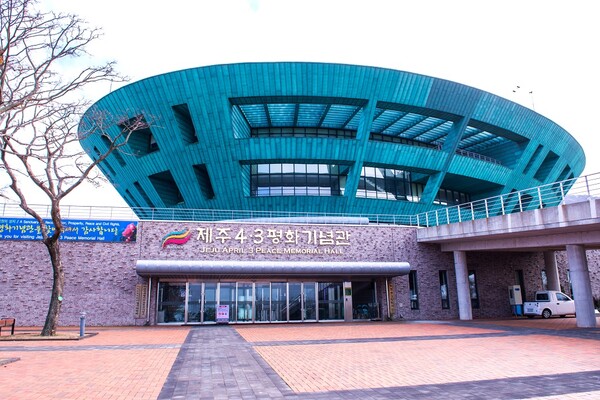
With the rising global interest in Korean culture following author Han Kang’s Nobel Prize in Literature, the number of foreign tourists exploring Korean literature and its historical roots has surged. Many visitors are drawn to Han Kang’s works, such as The Vegetarian, Human Acts, and We Do Not Part, seeking to discover the real-world locations that inspired her stories. By introducing the settings of Han Kang’s novels, The Dongguk Post aims to highlight the significance of the spaces that shaped Korea’s history and literature. Moreover, we aspire to expand tourism toward regions, emphasizing the literary and historical value present throughout the nation.
Human Acts - May 18th Democratic Uprising Archives
Han Kang’s Human Acts bears witness to both the brutality and nobility of humanity, focusing on the indomitable spirit that must never be eroded. The novel reconstructs the collective pain and inner struggles of victims of the Gwangju Uprising, a defining moment in Korea’s democratization movement. Publishers describe the book as a “narrative probe into the structure of wounds,” presenting the shared memory of the May 18th Democratic Uprising through a compelling poetic device that brings the collective memory into the present. The Gwangju Uprising, a prodemocracy movement, emerged in resistance to the nationwide expansion of martial law under the military dictator Chun Doo-hwan after his coup. This resistance faced violent suppression, with reports of the unjust killings of Gwangju citizens by the regime. The May 18th Memorial Hall in Gwangju preserves and exhibits records of the uprising, recognized as a shared heritage of humanity. Established to honor the movement, the hall also serves as a platform for democracy and human rights education. Its exhibitions chronologically depict key events, from the torchlight marches demanding democracy to the 10-day uprising and the subsequent struggles to carry on its legacy. Through this, the hall contributes to building a society founded on freedom, peace, and unity. Furthermore, the Citizens’ Plaza serves as a venue for cultural events like theater festivals and youth debates, designed to pass on the spirit of the May 18th Democratic Uprising to younger generations. Besides, it offers guided tours with regular explanations and audio guides, as well as field trip programs that visit other sites related to the May 18th Democratic Uprising. Additionally, the seventh-floor multi-purpose auditorium and seminar rooms can be accessed through a facility usage application. If you visit this place, be sure to watch a variety of media.
We Do Not Part - April 3rd Peace Memorial Hall
Han Kang’s We Do Not Part explores another dark chapter of history, portraying the long and quiet struggle of survivors searching for their missing family members after mass killings. Despite the violence and fear, memories endure, affirming the determination not to bid farewell but to keep the dead alive in remembrance. Through poetic prose, the novel mourns victims and reflects on the political violence in Korea’s history. The Jeju April 3rd Incident was a tragic conflict on Jeju Island, during which political factions either participated in or condoned mass killings of civilians. These atrocities encompassed various forms of massacres—ideological, religious, counter-insurgency, and retaliatory— making it one of Korea’s most devastating events. Even after democratization, the incident faced suppression, and only recently have efforts toward truthfinding and reconciliation emerged. The April 3rd Peace Memorial Hall was established to commemorate the resistance of Jeju residents against injustice and to honor the lives lost during the massacres carried out under Korea’s first post-independence government. It provides a comprehensive view of 20th century mass killings, modern Korean history during the liberation period, and their broader implications. As an educational site, it aims to pass on lessons of perseverance and suffering while promoting universal values of peace, human rights, and unity, ultimately contributing to the vision of a peaceful global community. The memorial hall is broadly divided into the permanent exhibition hall and the special exhibition hall. The permanent exhibition showcases the causes, progression, outcomes, and truth-finding process of the April 3rd Incident. Meanwhile, the special exhibition hall hosts thematic exhibitions directly or indirectly related to the April 3rd Incident, screens related films, and organizes academic conferences, offering a variety of attractions for visitors. Currently, a special exhibition titled “Stories of Children Who Experienced War” is on display.
This article has explored Korea’s literary and historical significance through the lens of Han Kang’s works, introducing key locations related to her novels. The Dongguk Post hopes this inspires readers to delve deeper into Korean culture and literature, cultivating an appreciation for the history behind the stories and encouraging visits to these meaningful sites. The Dongguk Post encourages readers to explore other literary works rooted in Korean history, as numerous remarkable pieces provide deeper insights into the Korea’s past.

